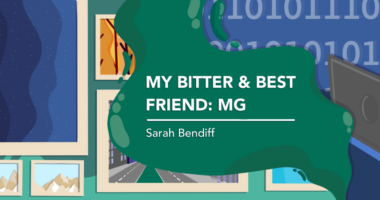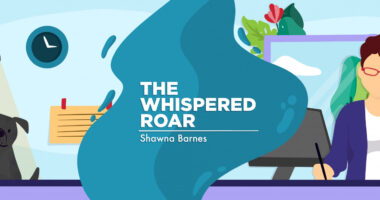Why does myasthenia gravis awareness matter?
A columnist shares tips for ensuring that education becomes action

“Is there anything I need to know to help you in an emergency situation? What does an emergency look like for you?”
A client of mine recently asked me those questions as we chatted before getting to work. She had come into The Nook, a shared workspace I run, for some tech help. This wasn’t her first time coming in, and I’d previously discussed with her the challenges of treating my myasthenia gravis (MG).
I was initially taken aback, because they aren’t the type of questions I anticipate getting from people outside my close circle of family and friends. But I was touched that she would be so considerate.
When I asked what prompted her interest in knowing how to respond to a possible MG emergency, she said it was because of my awareness posts online. Awareness is about education. When done in a way that is approachable, easy to digest, and doesn’t come across as attention-seeking, awareness posts do exactly what we all hope they will do: promote action.
Raising awareness effectively
Following are just a few possible ways to approach writing social media posts about MG:
- They can be strictly educational and accompanied by an infographic.
- They can be laced with humor and tell a memorable story.
- They can be personal anecdotes that explain a personal trial or tribulation.
When deciding what kind of awareness post to create and share, approachability should be one of the top considerations. If you think back to posts or articles that you’ve read in the past, there are invariably some that resonated with you and others that didn’t; some that are memorable and others that aren’t even a blip in your subconscious. What was it about the ones that stuck with you?
When creating an approachable piece, I do my best to stay away from words that may not be common knowledge. I also refrain from playing the blame game or painting myself as a victim. I don’t want people to feel sorry for me and have that sorrow overshadow the message I’m trying to share.
That last point ties into the idea of not portraying myself as a victim. Having this disease sucks, no doubt about it. It can be easy to focus on the crappy aspects that read as attention-seeking and “woe is me.” An unfortunate reality is that too much discussion about this side of MG is often seen as attention-seeking by those unfamiliar with the disease.
When those we are trying to educate through awareness are turned off to our message, our efforts won’t even start to gain momentum.
The next thing I try to keep in mind is keeping the message easily digestible. I share little tidbits about MG throughout the year, not just during MG Awareness Month in June. By sharing year-round, there’s no pressure during this month to share everything I wish people knew about myasthenia gravis and what it’s like living with it.
The interaction I had with my client last week made me realize just how important awareness and education are. When done right, they turn into action, which can create a ripple effect that extends far beyond our wildest dreams. You never know, your choice to share and raise awareness may inspire the neuromuscular disease researcher who ends up finding the cure for MG.
It could happen.
Note: Myasthenia Gravis News is strictly a news and information website about the disease. It does not provide medical advice, diagnosis, or treatment. This content is not intended to be a substitute for professional medical advice, diagnosis, or treatment. Always seek the advice of your physician or other qualified health provider with any questions you may have regarding a medical condition. Never disregard professional medical advice or delay in seeking it because of something you have read on this website. The opinions expressed in this column are not those of Myasthenia Gravis News or its parent company, Bionews, and are intended to spark discussion about issues pertaining to myasthenia gravis.







Jennifer Long-Leckrone
Thanks for sharing this important data. I am 59 and diagnosed with GMG a little over a year ago.